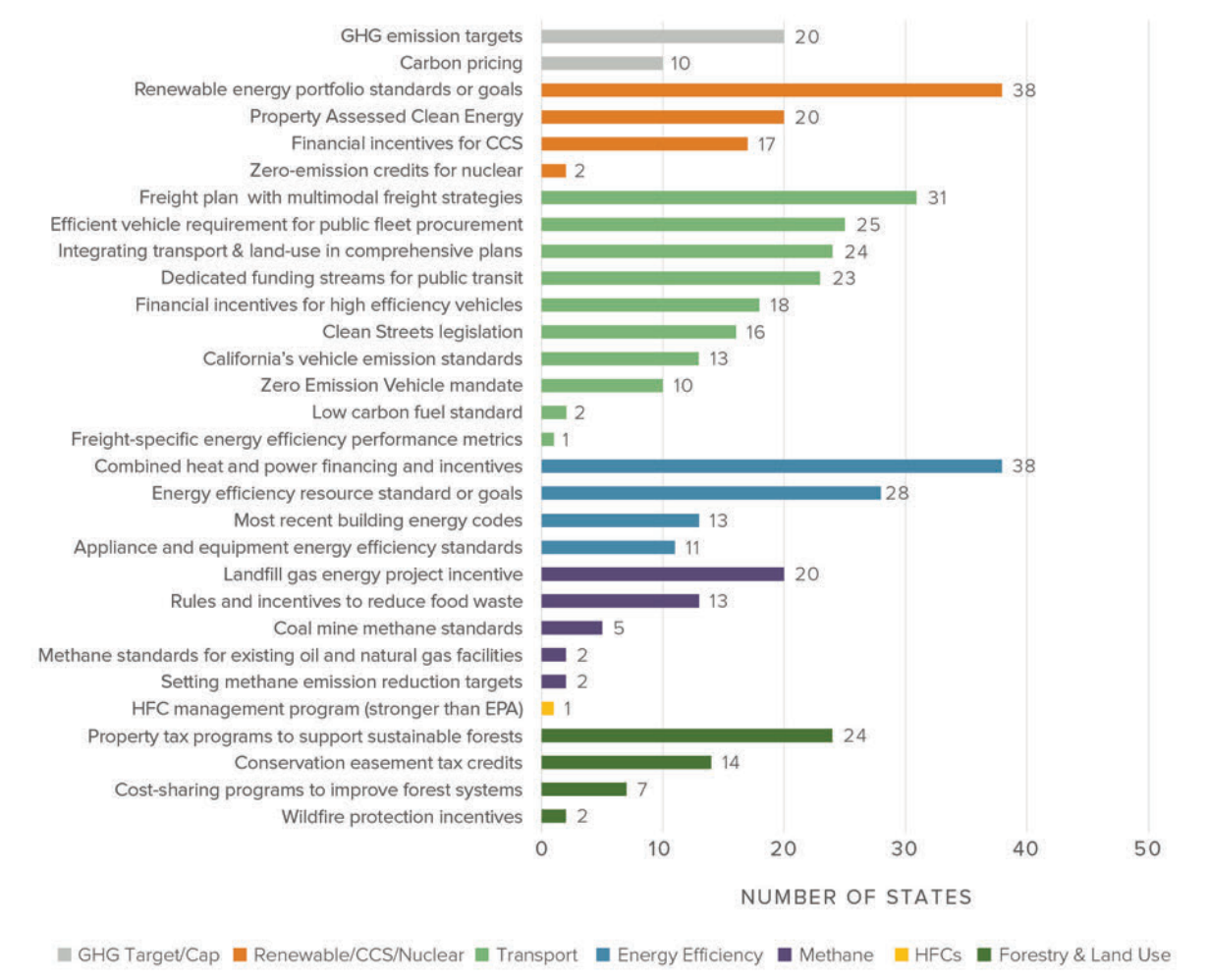Momentum in Climate Action: Legislation and Utilities
During the recent Colorado legislative session, state senators and representatives took significant steps to support climate action initiatives through legislation. Below is a summary of a few very exciting recent bills in Colorado:
Climate Action Plan to Reduce Pollution (HB19-1261) directly address reducing statewide greenhouse gas (GHG) emissions. It establishes a statewide goal to reduce emissions by at least 26% by 2025, 50% by 2030, and at least 90% by 2050 (all targets are based on a 2005 emission baseline).
Collect Long-term Climate Change Data (SB19-096) requires the Colorado Department of Public Health and Environment (CDPHE) to collect data from GHG emitting entities, report on the data, includes a forecase of emissions, and propose a draft rule to address emissions by July 1, 2020.
Community Solar Gardens Modernization Act (HB19-1003) increases the allowable size of a community solar garden from 2 to 5 megawatts. It also removes the requirement that subscribers must be location in the same county as, or adjacent to, the county where the community solar garden is located.
Other Colorado bills focused on requiring standards of water and energy efficiency for new appliances sold in the state (HB19-1231) and requiring that communities update their building energy codes to one of the most recent three International Energy Conservation Codes when updating their general building codes (HB19-1260). Governor Jared Polis has made electric vehicles a focus of his climate and energy policy, and the legislature responded by passing bills to support the electric vehicle market, including a bill that focuses on grants for electric vehicle charging stations (HB19-1198) and another bill that extends the tax credit for vehicle purchases (HB19-1159). The impact from these bills would be far-reaching and based on a February 2019 poll, just what Coloradans are looking for in terms of regulatory leadership. Based on the poll of 400 Coloradans done by the Global Strategy Group, 84% said they wanted federal and state action on climate change, and 79% supported a 100% renewable energy policy.
While HB19-1313 did not pass, and would have required carbon reductions in electricity production for large utilities in the state, there are forces outside of the state legislature that will likely also lead to emissions reductions. Xcel Energy, the largest electricity provider in the state, recently announced plans to implement its Colorado Energy Plan that includes more wind and solar energy and a path forward to reduce carbon emissions. Xcel’s goals for a carbon-free future include 80 percent less carbon by 2030 and 100 percent carbon-free by 2050. Other utilities across the country are taking similar action. Idaho Power already generates about 50 percent of its power from hydropower and now plans to generate all electricity from renewable sources by 2045. Northern Indiana Public Service Company (NIPSCO) plans to retire it’s coal plants over the next 10 years (roughly 65 to 70 percent of their generating capacity is from coal).
Other areas of the country are making progress too. According to the November 2017 report “America’s Pledge Phase 1 Report: States, Cities, and Businesses in the United States Are Stepping Up on Climate Action”, which can be found here, the transition to a lower carbon future can be attributed to many factors including cleaner energy and transportation options, solar power pricing reductions, and lower pricing for vehicle batteries. The list of areas where impacts can be made to reduce emissions is long and covers many areas of sustainability. States, cities, and businesses alike are making strides. The figure shown here (Figure ES-3 from the 2017 report) depicts the variety of sustainability measures and the number of states that have adopted them.
Are these measures enough to avoid the worst impacts of climate change? While recent legislative activity at the state level in Colorado and elsewhere in the county are moving us in the right direction, more movement is needed to ensure a safe and healthy future for the planet. The call to action is pressing….and for us here at Lotus, it’s exciting to see collaboration on global, nationwide, and local levels to address climate change.

